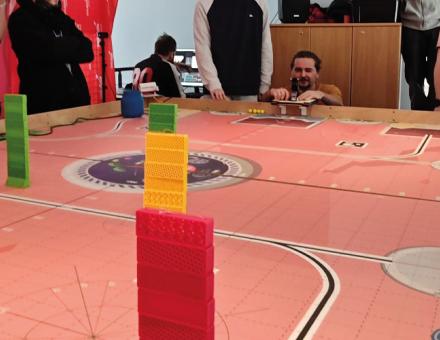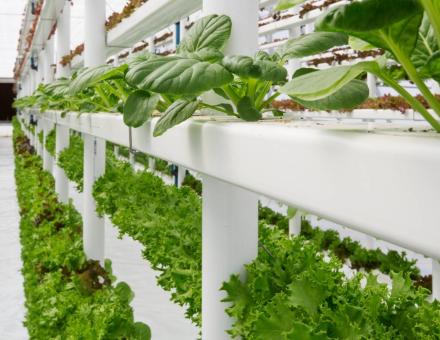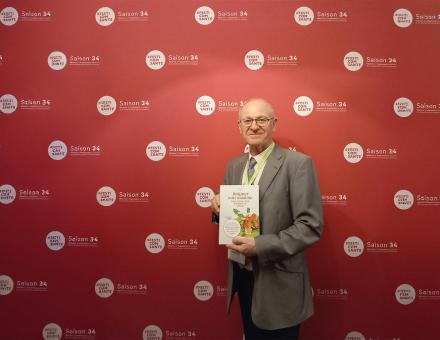The scientific conferences organized by the Cyclann team of researchers at the UniLaSalle Campus in Rennes are in full swing. At the beginning of this school year, 2 editions have already taken place: one on chemistry and the other on water.
Popularized presentations are accessible to all: experienced or novice, students or professionals.
13h ConSci #1 It's time to reconcile with chemistry!
On 20/10/2022, Romain Ligny, teacher-researcher in environmental chemistry and head of the pre-engineering course at UniLaSalle Rennes, school for environmental professions, led this 1st 13h ConSci conference of the year 2022-2023.
For some of the general public, chemistry is a polluting, dangerous, incomprehensible and unnatural science. What if we told you that a little more than a century ago, going to a chemistry lecture at Christmas with your family was a fashionable social event?
Chemistry is the science of understanding phenomena at the atomic and molecular level, but also the analysis of matter (from drug tests to wastewater!) and the treatment of the latter (modification, new materials, depollution...).
A little history, how was chemistry born?
The first transformation of matter is linked to the mastery of fire 400 000 years ago. The digestion being simplified with cooked food, the surplus of energy allowed us to develop our brain and to pass to a new stage of the evolution of the Human being. The understanding of matter has long been a source of philosophical debate from ancient Greece to the 16th century (what is an atom and its structure?). Then, in opposition to the alchemical works, chemistry imposed itself as a constructed and thoughtful science and its teaching entered the university with the works of Antoine Lavoisier in particular. The usefulness of chemistry in everyday life (industry, medicines, heating, food...) as well as the popularization works of scientists of the time (Jane Marcet and Michael Faraday among others) put chemical knowledge within everyone's reach. In the 19th century, it was socially important to come to a social event with the knowledge of the advances in chemistry and the latest discoveries. Chemistry was understood and recognized as necessary by the general public.
So what happened to bring us to the present situation?
Unfortunately, the 20th century was marked by world wars (use of poison gas), industrial disasters, pollution and destruction of ecosystems. With these facts, the image of chemistry is definitely blackened for the public. However, behind each disaster will be created a standard or a control agency of these industries (ICPE, SEVESO III, Reach...). The work of the chemical industry is now focused on safety, hygiene, security and environment (HSQE).
How can we restore the image of chemistry and destroy the prejudice that "chemistry = unnatural"?
The question of how to reconcile the public with chemistry must be addressed in a global historical and cultural context. This chemistry/nature dichotomy "is based on a historical feature of the chemical industry, namely its development in the context of an economy aimed at mass production and the consumer society. [...] To change the image of chemistry, is it not reasonable to change production and marketing practices? It is not so much chemistry itself that is at issue as the economic and social system in which it has developed. (Bernadette Bensaude-Vincent, professor of history and philosophy, University of Paris X-Nanterre).
Has the chemical industry forgotten the essence of chemistry and is it worth remembering that every artifact has a purpose, that it is manufactured for a specific purpose and not to create profit?
13h ConSci #2 What if one day our tap water stopped flowing?
On 09/12/2022, Michaël Goujon, teacher-researcher in hydrogeology and polluted sites and soils on the Beauvais campus, hosted the 2nd opus on a vital subject: the water supply.
Turning on a faucet, taking a shower, flushing the toilet, simple gestures of our daily life... but what if everything stopped?
What if the tap stopped running? When this happens on the other side of the world, we feel spared and even unconcerned. But when, after a particularly dry year in 2022, it is France that is affected and in a state of drought alert, that 117 communes are deprived of drinking water, we try to understand. Is the problem linked to climate change? To our consumption patterns? To this invisible resource (groundwater), which represents 2/3 of the origins of our drinking water?
Faced with these problems of water availability, man, rather than rationalizing his consumption, seeks to adapt to find alternative solutions, sometimes at the expense of global interests. Have we reached the point of a Water War?
The next edition of 13h ConSci will take place on February 15, 2023 with Mathilde Mercier, a teacher-researcher in Energy Transition and Process Engineering and member of the Rennes-based Cyclann research team.
The theme will be "Energy and societal transition: where do we start?
See you soon!
Photo credit front : Chiara Tiberti from Pixabay






